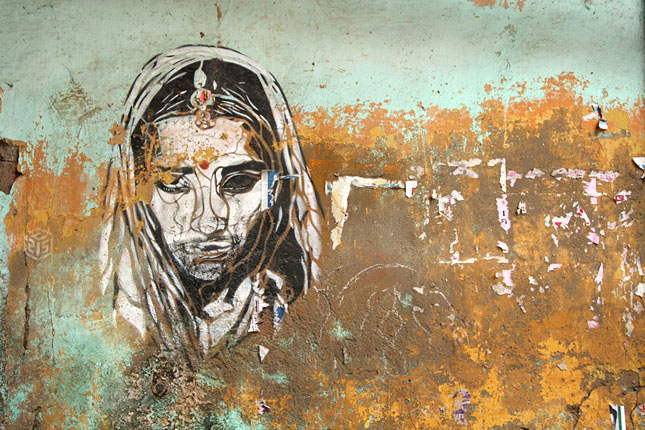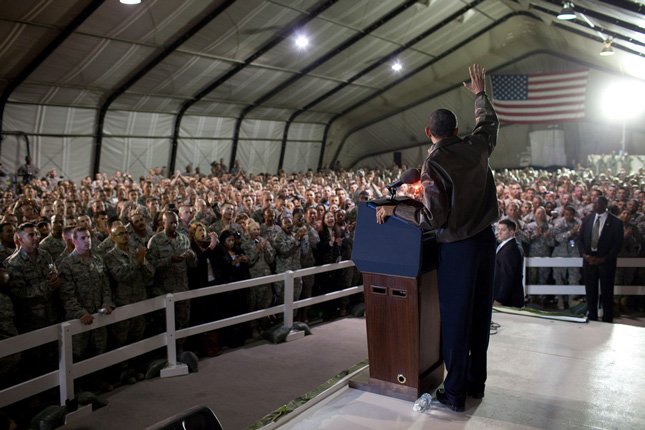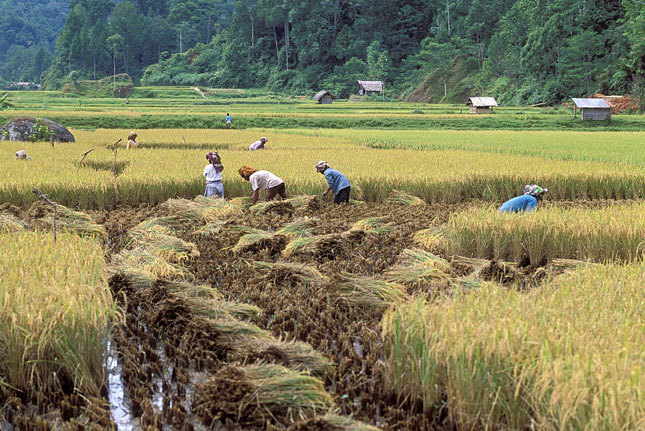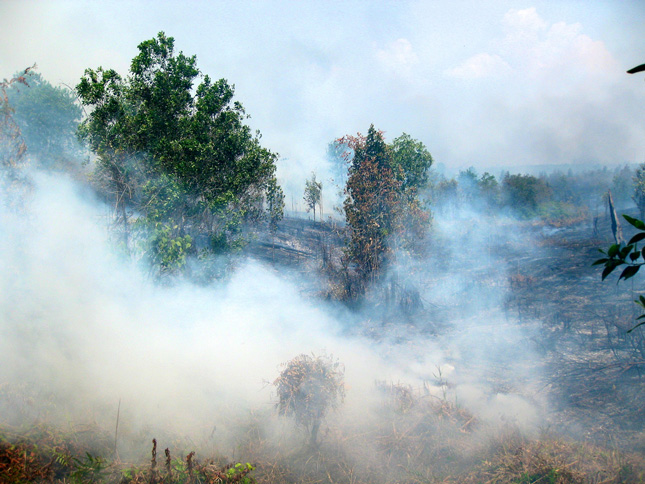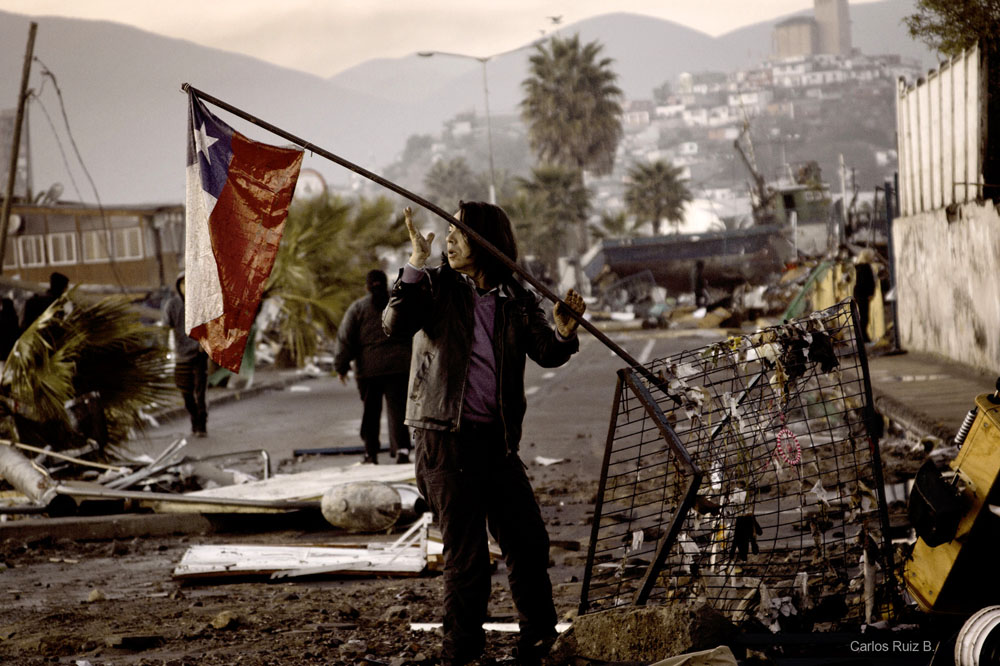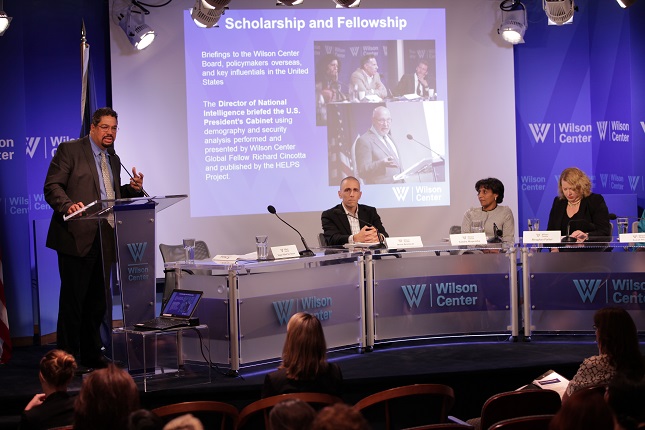-
Carlos Manuel Rodriguez, Human Nature
Murders of Environmental Activists Reflect Chronic Clashes Over Resource Use
›April 4, 2016 // By Wilson Center Staff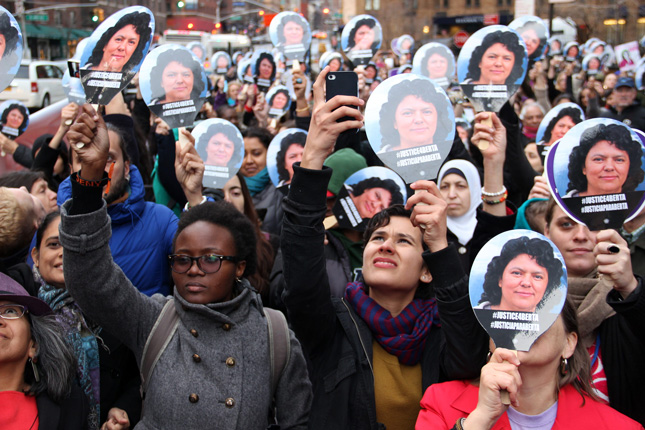
When I heard of the horrific murder of Berta Cáceres, a Honduran environmental activist who had spent years fighting to protect her community’s traditional lands, I was shocked – though perhaps I shouldn’t have been.
-
India’s Young and Restless
›March 14, 2016 // By Michael Kugelman
When we think about countries on the Indian subcontinent with destabilizing demographics, Pakistan comes to mind immediately. First, it’s a country with a very young population. Almost two thirds of its nearly 200 million people are under 25, and the median age is about 22. Second, this youth cohort is highly susceptible to radicalization. Nearly every terrorist attack in Pakistan since 9/11 has been perpetrated by someone under 30. In recent years, the Wilson Center has focused on Pakistan’s youth demographic challenges in detail. India, however, needs to be included in this conversation as well.
-
The Commander in Chief, Congress, and Climate Security: Who Has the Authority?
›
Climate change is the world’s greatest environmental threat. It is also increasingly understood as a threat to domestic and international peace and security – recognized by the Department of Defense as a “threat multiplier,” by Secretary of State John Kerry as “perhaps the world’s most fearsome weapon of mass destruction,” and by President Obama, in an address to graduates of the United States Military Academy, as “a creeping national security crisis.” The Supreme Court’s temporary blocking of the Clean Power Plan highlights the Federal-State divide over how to address climate change, but because of its national security dimension, climate change also raises unique separation of powers issues between the president and Congress with regard to how the military can respond.
-
Venezuela’s Turn? Age Structure and Liberal Democracy in South America
›January 21, 2016 // By Richard CincottaVenezuela seems suspended at a critical juncture. Following national elections in December, the opposition Democratic Unity Roundtable was set to occupy two thirds of the 167-seat National Assembly, an upset that would reduce the late Hugo Chávez’s United Socialist Party to a distant second place for the first time and given opposition legislators the power to enact sweeping political changes.
-
New Research Reveals Climate-Food-Conflict Connection Via Nighttime Temperatures
›
The effect of climate change on the emergence of violent conflict has become one of the more lively academic debates and is even bleeding over into the mainstream. Despite a substantial number of studies, results are contradictory and somewhat inconclusive.
-
Lisa Palmer, Yale Environment 360
Will Indonesian Fires Spark Reform of Rogue Forest Sector?
›November 11, 2015 // By Wilson Center Staff
The fires that blazed in Indonesia’s rainforests in 1982 and 1983 came as a shock. The logging industry had embarked on a decades-long pillaging of the country’s woodlands, opening up the canopy and drying out the carbon-rich peat soils. Preceded by an unusually long El Niño-related dry season, the forest fires lasted for months, sending vast clouds of smoke across Southeast Asia.
-
Growing Role of Armed Forces in Disaster Relief a Dangerous Trend for Latin America
› -
Engaging Decision-makers on Family Planning: Some Right IDEAs
›
Just a few years ago, progress on global family planning and reproductive health policy seemed to be stuck in a rut. “For 20 years, development money for health had been directed to fight HIV and poverty, and as a result, momentum, interest, and funding for family planning had dwindled,” said Susan Rich, vice president of global partnerships for the Population Reference Bureau (PRB), at the Wilson Center on July 15. “Unmet need for family planning was high all over the world, but especially in Africa.” [Video Below]
Showing posts from category democracy and governance.


